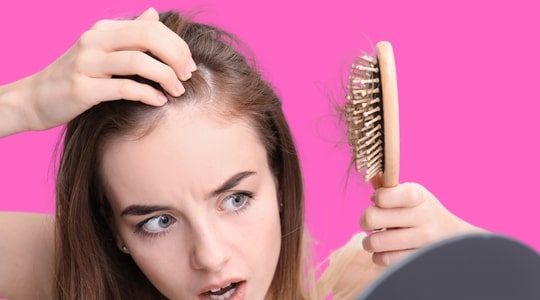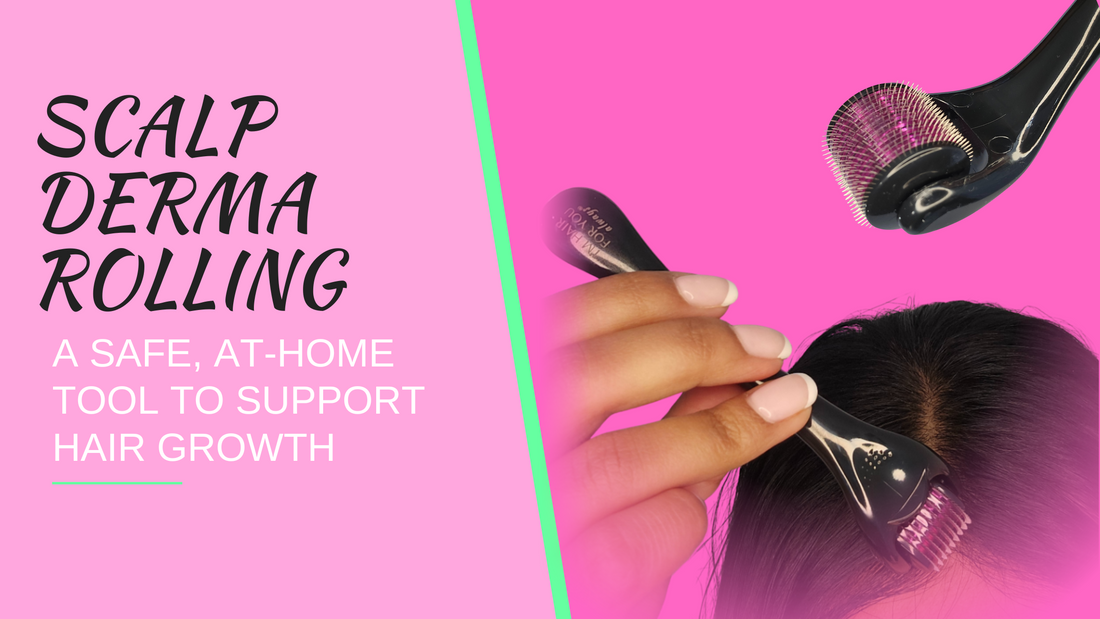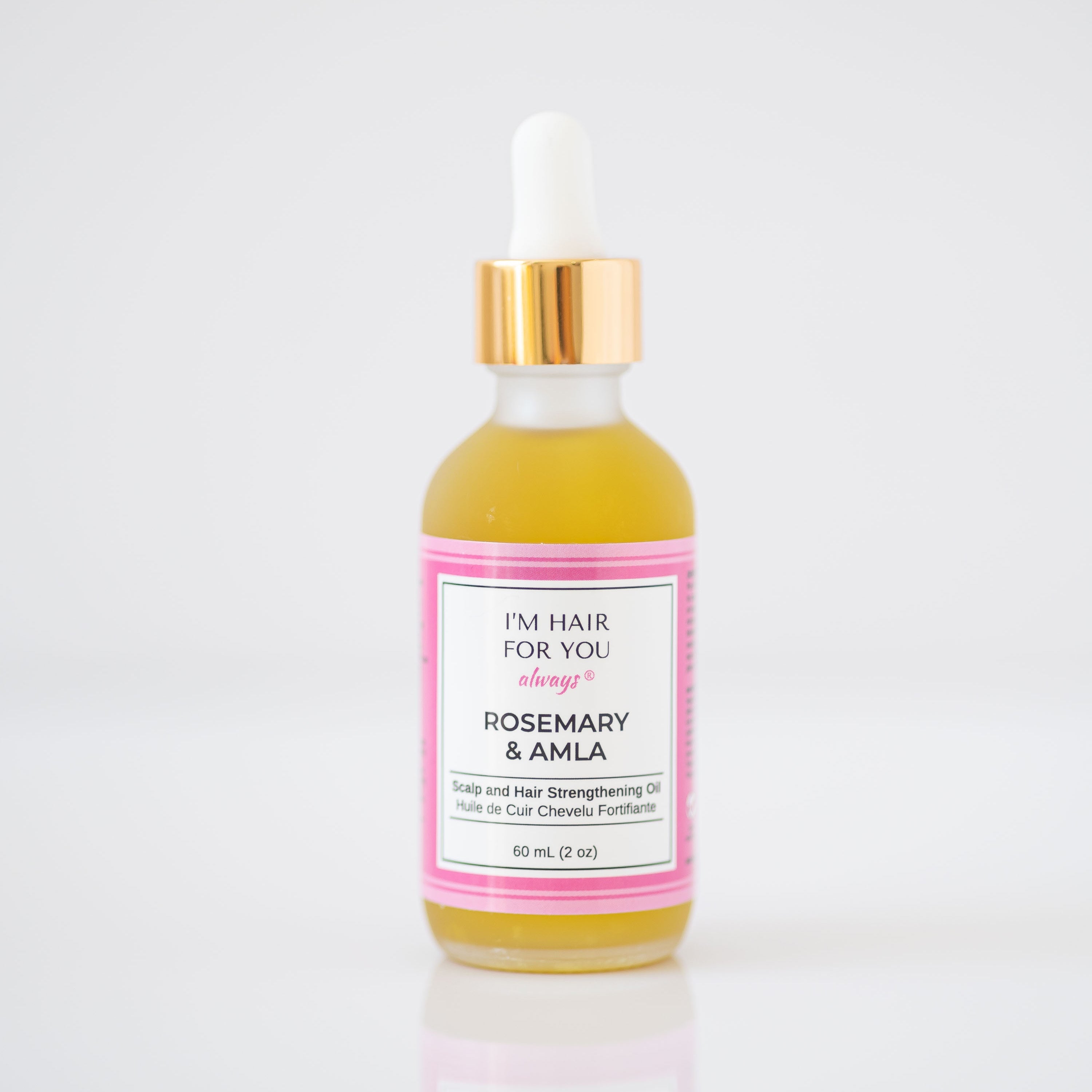Hey there, follicle warriors! Are you tired of finding more hair on your pillow than on your head? Don't fret, because today we're diving into the wild world of Telogen Effluvium (TE), where hair shedding reigns supreme. Get ready to tackle this hairy situation head-on with a healthy dose of sass and some fabulous solutions. Buckle up, folks, because we're about to embark on a journey to stop shedding and start slaying!
What’s Telogen Effluvium?
Telogen effluvium is a type of hair loss characterized by excessive shedding of hair from the scalp. It occurs when a significant number of hair follicles enter the telogen phase, which is the resting phase of the hair growth cycle, prematurely. Normally, about 10-15% of the hair follicles are in the telogen phase at any given time. However, in telogen effluvium, a larger proportion of hair follicles enter this phase, leading to noticeable hair loss.
Causes of Telogen Effluvium:
Telogen effluvium can be triggered by various factors, including:
- Stress: Stressful events, such as a traumatic experience, major surgery, or emotional upheaval, can disrupt the hair growth cycle, pushing more hair follicles into the telogen phase and resulting in excessive shedding.
- Nutritional Deficiencies: Inadequate intake of essential nutrients, such as iron, zinc, biotin, and vitamin D, can contribute to hair loss and telogen effluvium. Maintaining a balanced diet is crucial for healthy hair growth.
- Hormonal Changes: Hormonal imbalances caused by childbirth, menopause, or thyroid disorders can disrupt the hair growth cycle and lead to telogen effluvium.
- Medications and Medical Treatments: Certain medications, including antidepressants and beta-blockers, as well as medical treatments like chemotherapy, can induce telogen effluvium as a side effect.
Symptoms of Telogen Effluvium:
Telogen effluvium is characterized by diffuse hair thinning and excessive shedding. Some common symptoms include:
- Increased hair loss during washing, brushing, or styling.
- Thinning hair on the top of the head.
- Noticing more hair in the shower drain, on the pillow, or on clothing.
- The presence of white bulbs at the end of shed hairs.
Managing and treating Telogen Effluvium:
While telogen effluvium can be distressing, the good news is that it is often temporary, and hair regrowth usually occurs once the underlying cause is addressed. Here are some strategies to manage telogen effluvium:
- Address the underlying cause: Identify and address any underlying factors contributing to telogen effluvium, such as stress, nutritional deficiencies, or hormonal imbalances. Consult with a healthcare professional for a comprehensive evaluation and appropriate treatment.
- Practice stress management techniques: Since stress is a significant contributor to telogen effluvium, managing stress is crucial. Incorporate stress-reducing practices into your daily routine, such as exercise, meditation, deep breathing exercises, or engaging in hobbies and activities you enjoy. Engage in activities like meditation, deep breathing exercises, yoga, or mindfulness to reduce stress levels.
- Maintain a balanced diet: Ensure your diet includes a variety of nutrient-rich foods, including fruits, vegetables, lean proteins, whole grains, and healthy fats. Consider consulting a nutritionist or dietitian to address any specific deficiencies. Make sure your are getting enough nutrients, including vitamins (such as biotin, vitamin D, and vitamin E), minerals (like iron and zinc), and protein, which are essential for hair health.
- Prioritize sleep: Aim for an adequate amount of quality sleep each night to support your body's natural regenerative processes, including hair growth.
- Gentle hair care practices: Be gentle with your hair to minimize further damage. Use only 100% Silk scrunchies and pillowcases, use a wide-toothed comb or a brush with soft bristles to prevent unnecessary hair breakage.
- Stay hydrated: Drink an adequate amount of water each day to support overall bodily functions, including hair growth.
- Avoid harsh hair treatments: Minimize the use of heat styling tools, chemical treatments, and tight hairstyles that can damage the hair follicles. Instead, try our all-natural Rosemary & Amla scalp and hair strengthening oil. Rosemary has proven to be just as effective as minoxidil. We highly recommend staying away from unnatural products as there known side effects. If you feel you condition is severe, we do suggest you consult the appropriate medical practitioner and get a diagnosis.
- Regular exercise: Engaging in regular physical activity can help reduce stress and promote overall well-being, potentially supporting hair regrowth.
- Silk: Make sure you avoid using elastic hair ties. Instead, use our 100% silk crunchies conveniently available in different sizes to accommodate your hair density.
- Scalp brush: Our Stimulate Me scalp brush is the ideal tool to help you achieve healthy hair and promote hair growth by stimulating the hair follicles promoting circulation and blood flow on your scalp and improving hair density while also gently exfoliating it and preventing build up.
Coping Strategies and Support:
Experiencing hair loss can have a significant emotional and psychological impact. It's important to acknowledge your feelings and seek support when needed. Consider the following strategies:
- Talk to a professional: Consulting a mental health professional, such as a therapist or counselor, can help you navigate the emotional challenges associated with telogen effluvium.
- Reach out to support networks: Share your concerns with trusted friends or family members who can provide a listening ear and emotional support.
- Join online communities: Connecting with others going through similar experiences can provide a sense of belonging and understanding. Check out our Instagram page, we are hair for you!
Encouraging hair regrowth and embracing self-confidence:
Remember, hair regrowth takes time, and it's essential to be patient and kind to yourself during this process. Consider the following tips:
- Embrace different hairstyles: Experiment with hairstyles that can help conceal thinning areas or make your hair appear fuller.
- Use hair care products wisely: opt for gentle shampoos and conditioners that nourish the hair and scalp. Avoid harsh chemicals that may further damage the hair.
- Focus on overall self-care: Engage in activities that make you feel good about yourself, such as practicing self-care routines, dressing in a way that boosts your confidence, or engaging in hobbies that bring you joy.
Congratulations, my fierce warriors! You've survived the Telogen Effluvium rollercoaster with style and sass. Remember, hair shedding might be a temporary setback, but regaining your confidence is forever. Embrace your unique beauty, treat your hair like the crown it is, and face any hair-raising challenge that comes your way. With a touch of sass and the right hair care arsenal, you're ready to conquer the world, one strand at a time!
Stay sassy, stay fierce, and keep slaying, my beautiful warriors!
Disclaimer: This blog post is intended for informational purposes only and should not replace professional medical advice. If you suspect you have Telogen Effluvium or any other hair-related condition, please consult a qualified healthcare provider or dermatologist for proper diagnosis and treatment.






